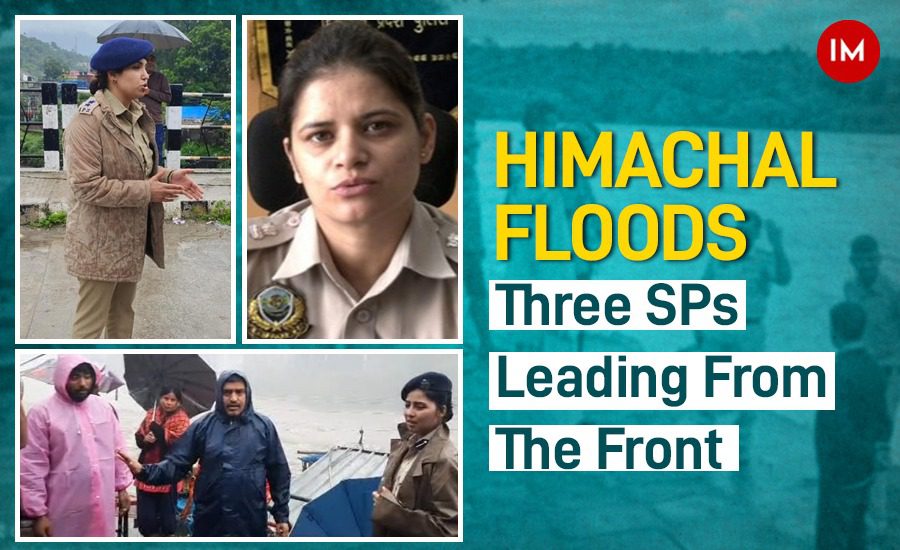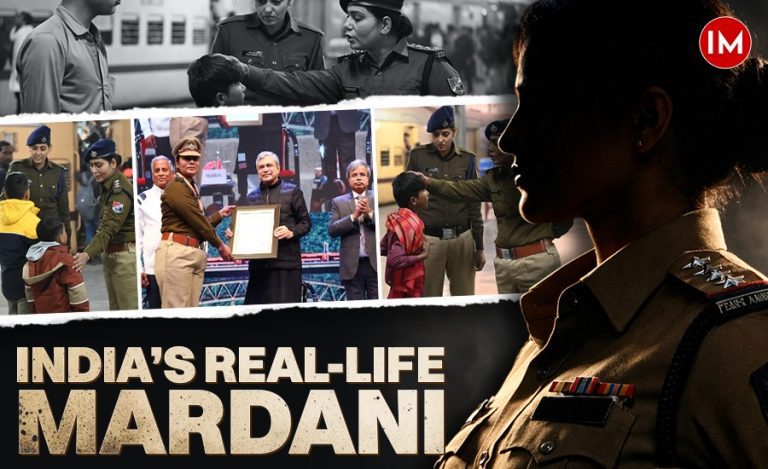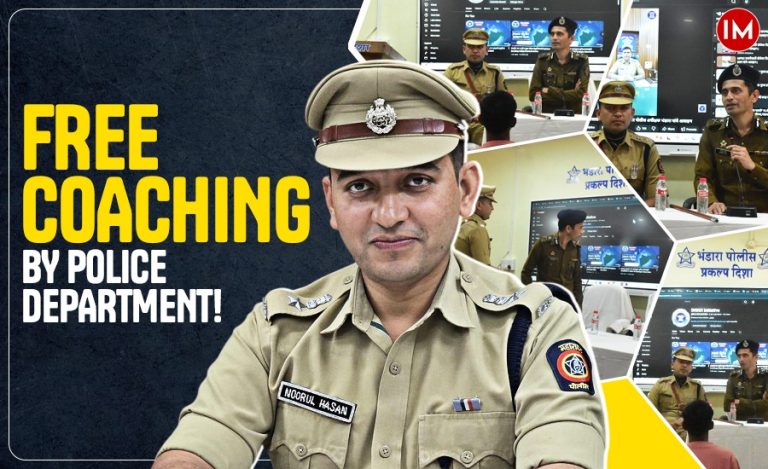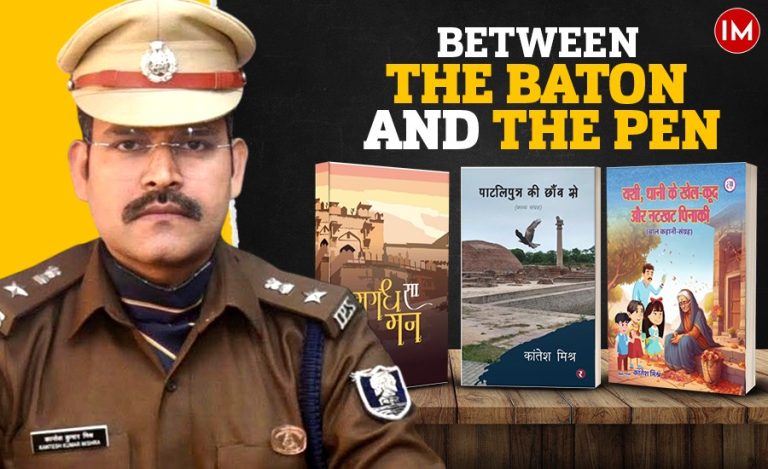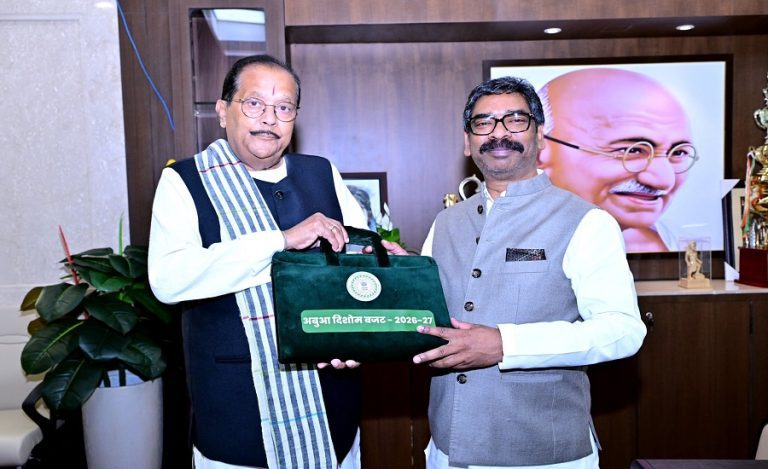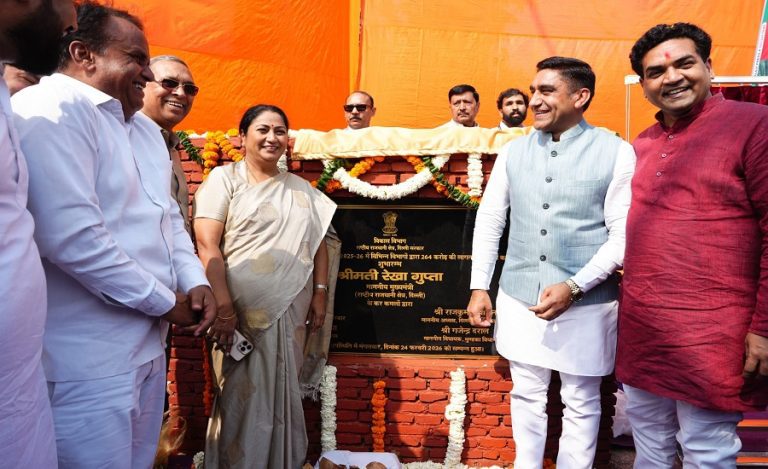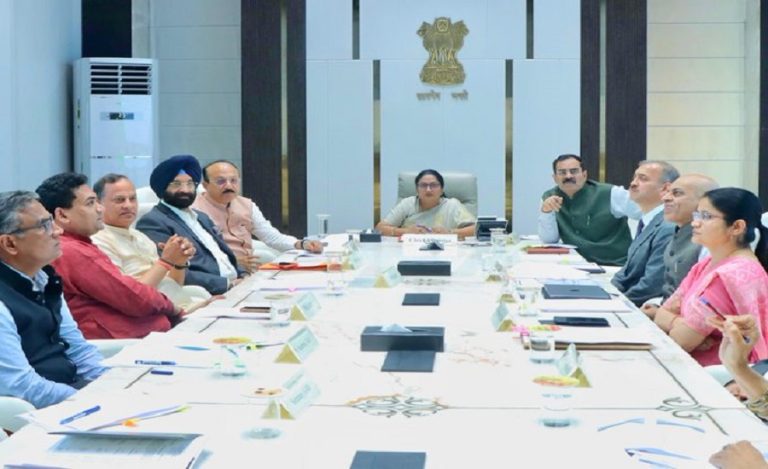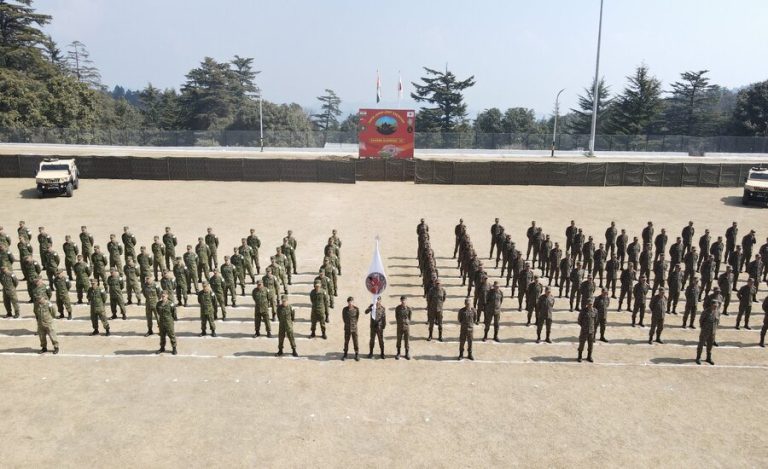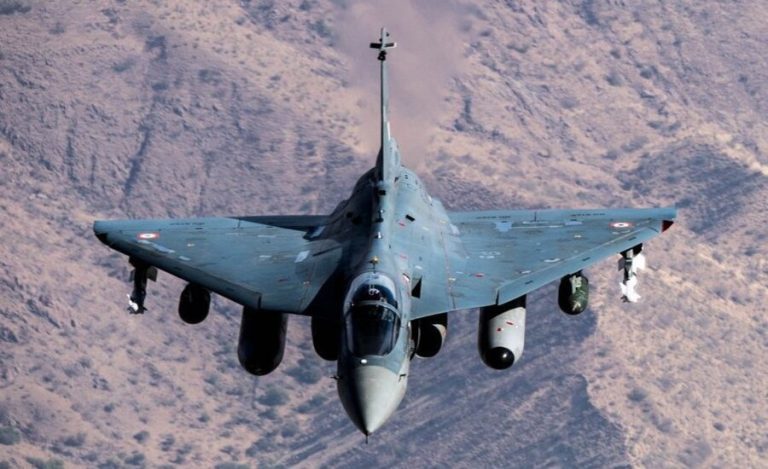As Himachal Pradesh continues to face unprecedented rainfall and floods, causing widespread devastation, women IPS officers are at the forefront of the rescue and relief operations. The worst affected districts – Kullu and Mandi – have women SPs, and so does Kangra, a district in the catchment area of the Beas river, gearing up for very heavy rainfall this weekend, as predicted in weather reports.
All three police officers are doing a commendable job in their respective districts, physically leading from the front and going literally into the eye of the storm!
Speaking exclusively to Indian Masterminds, all three IPS officers – SP Kullu, Ms. Sakshi Verma Karthikeyan, SSP Mandi, Ms. Soumya Sambasivan and SP Kangra, Ms. Shalini Agnihotri – gave information from ground zero about the current situation and shared how they are handling it.
KULLU: SP SAKSHI VERMA KARTIKEYAN, IPS 2014
Kullu district’s three important subdivisions – Manali, Banjar and Manikaran – are facing the brunt of the fury of nature. Unprecedented rainfall and resultant flash floods have wrecked large scale devastation. There were reports that 60 shops and houses were washed away in Sainj Valley which falls in the Manikaran subdivision. It is in Sainj Valley and Kasol, both popular tourist hubs, that SP Sakshi Verma Karthikeyan air dropped satellite phones.
She explained why: “I used choppers to drop satellite phones in Kasol and Sainj as these areas were totally cut-off and inaccessible. There was no electricity, no mobile connection, and even wireless sets were not working. Hence, we took this step to establish communication with the people stranded there.”
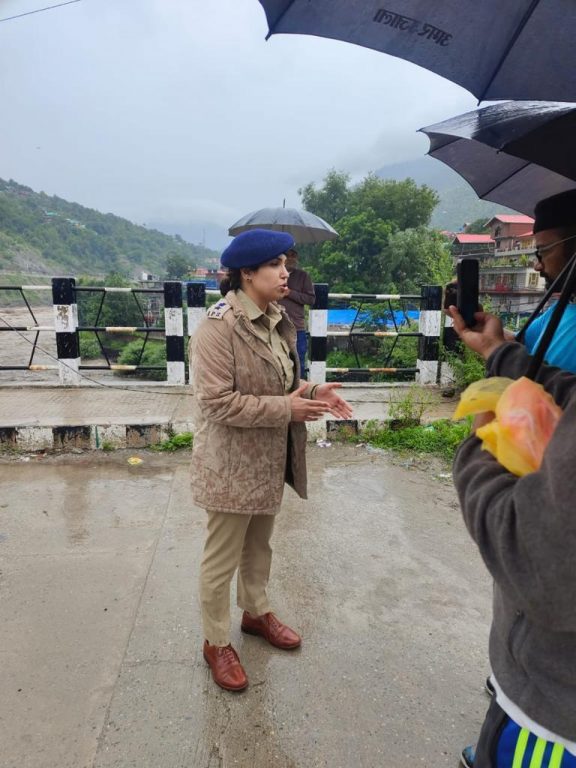
Once they got to know of the exact number of people there, and their names and their exact location, the information was then passed on to their worried relatives and friends. The control room is flooded with distress calls seeking such information.
Ms. Karthikeyan said, “Kasol was disconnected within itself. We got the information that many tourists were stranded there. So, we sent policemen and volunteers on foot to bring some of them back safely. Efforts are on to rescue the others.” Information has been received that around 15 Russian tourists are still stranded there. They had contacted the Russian Embassy via satellite phone and that’s how their whereabouts were known.
There have been also instances of policemen from local police posts walking their way through the slush and up the slippery hills to physically verify the stranded tourists and bring back the message that they are safe so that the police war room can inform their frantic families. Transshipment vehicles were also used wherever possible to bring people down.
The officer further informed that “even Kullu town was without electricity and water from Sunday till Tuesday night. We were giving out snacks and refreshments to people stranded on roads and cautiously letting them move ahead, as and when a safe passage was made.”
MANDI: SP SOUMYA SAMBASIVAN, IPS 2010
Mandi district also experienced the fury of rains in the worst possible way. With bridges, houses, roads still submerged under water, lack of communication is creating major issues. Communication between police stations and with the BSF have been disrupted. In fact, the BSF station had to be evacuated.
Ms. Soumya Sambasivan and her team are using walkie takies and satellite phones to communicate. Ten people were rescued near Pandoh Fam, while on 10 July, 80 people were rescued from slums near the Beas river, in the vicinity of the Panchvakta temple. Although around five deaths have been reported, the number is not certain. The uncertainty is the biggest challenge before them, the officer said.
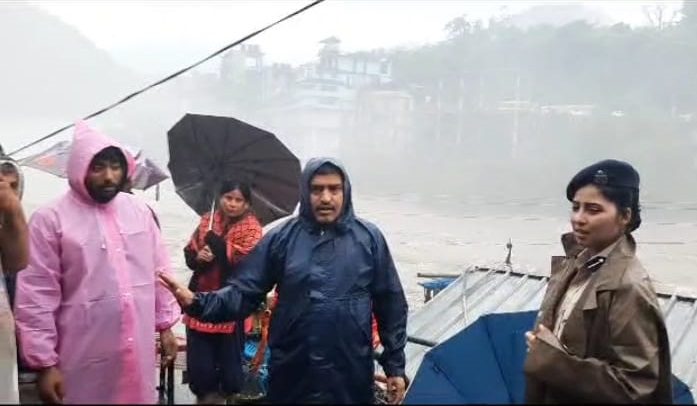
When Indian Masterminds spoke to her, she was out on the field helping the tourists coming in from Kullu. She said, “We got several calls from Delhi about missing tourists. Due to lack of electricity, communication is difficult. However, we have located almost every tourist in the area, restricted their movement, and arranged their stay in local sarai and gurudwaras. People are highly stressed and we are trying to ease their distress in every possible way.”
KANGRA: SP SHALINI AGNIHOTRI, IPS 2012
Kangra being located in the catchment of river Beas has not witnessed so much floods or destruction. Although the river is swelling over now, people who were living on its banks had already been moved to safety by the police.
“Besides the river bank dwellers who were mostly migrants and labourers, we also moved 35 families with around 550 livestock of the nomadic Gurjar community, who had temporarily settled near the river. We took them to a safer area, but they have moved on to some other region, as is their way of life,” SP Shalini Agnihotri said.
Another problem that they are facing is that the Beas river is bringing with it logs from the higher region and depositing them at the catchment area. These logs are highly valuable and the local people get into the water to drag them out. So, police is keeping constant vigil in this area to stop people from going into the water.
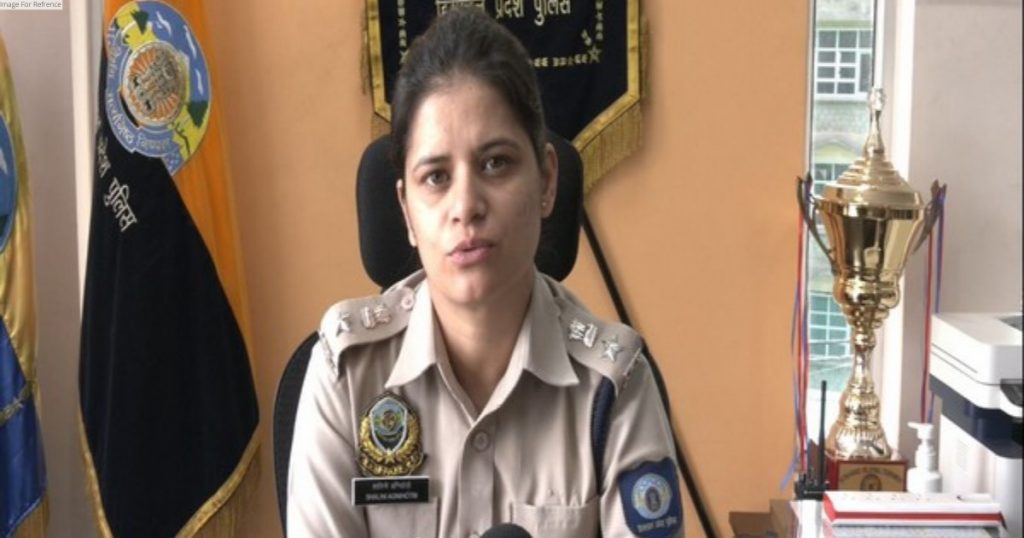
“Although the Beas river looks calm, right now it has very strong undercurrents, because of which people might get swept away and drown. Hence, I have ensured round-the-clock patrolling near the banks to stop people from going near,” she said.
One drowning death was reported, but later, it was found out that the person accidentally drowned when he went to wash himself after attending a funeral.
Nonetheless, Ms. Agnihotri is now bracing up for a real challenge ahead as very heavy rainfall has been predicted for the coming weekend. Weather reports have been coming in with frequent warnings.
“We are taking several pre-emptive measures like moving people in vulnerable low-lying areas to safer places. We are putting them up in gurudwaras, hotels, and temporary shelters. I have also equipped all our rescue teams with necessary items like floater rings, ropes, folding ladders, head torches, which will be kept in their vehicles for immediate use in the case of an emergency.”
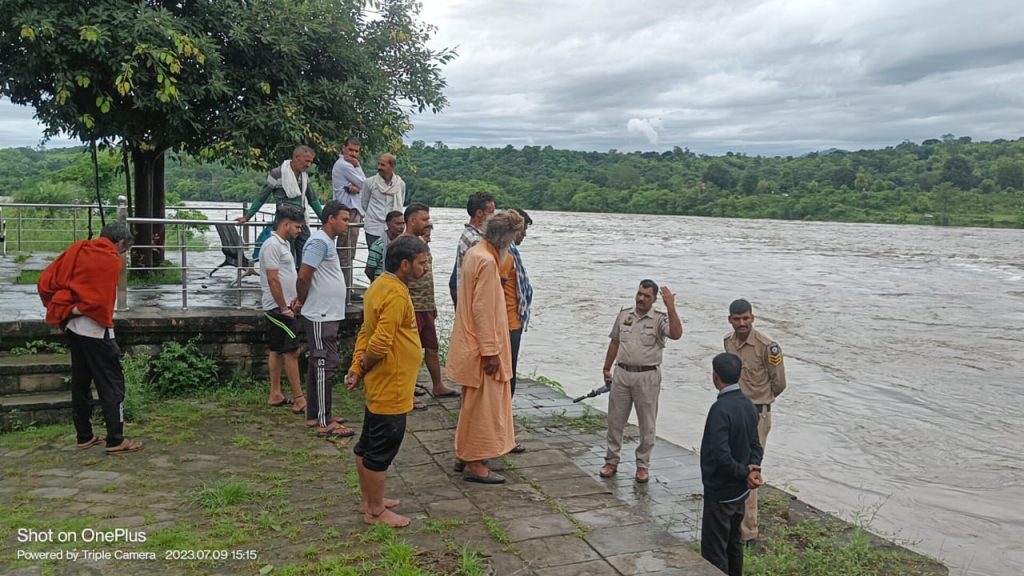
Meanwhile, the district is also filling up with foreign tourists, most of them having cancelled their planned visits to Kullu and Mandi, and opting for Kangra Valley instead. So, the police department is also keeping a close tab on them and warning them what to do and what not to do in the event of torrential rains and flash floods.
“We are prepared for any kind of storm. I was earlier posted in Kullu and Mandi, so I know about such preparedness,” Ms. Agnihotri said.
On the significance of women police chiefs in charge of disaster management under the able guidance of a woman DGP, Ms. Satwant Atwal Trivedi, IPS, she said, “I consider myself lucky to be in the team. There is so much to learn from them and from their experiences.”
LESSONS FROM THE SUPERWOMEN
It’s not just Ms. Agnihotri, but we all can take learnings home from these lady police officers to apply in moments of crisis. Like the way they are going about their job calmly, handling the crisis with practised ease, and not letting it go out of hand. Also, taking pain to weather the storm together with their teams, inspiring confidence in them, and gaining people’s trust in the process.
Each one of them has family (SP Kullu Sakshi Verma Karthikeyan is mother of an infant), yet they are out helping other families in their districts, ensuring their safety and well-being, amidst an inclement weather that shows no signs of relenting, major communication breakdown, and the uncertainty of what’s more to come.

